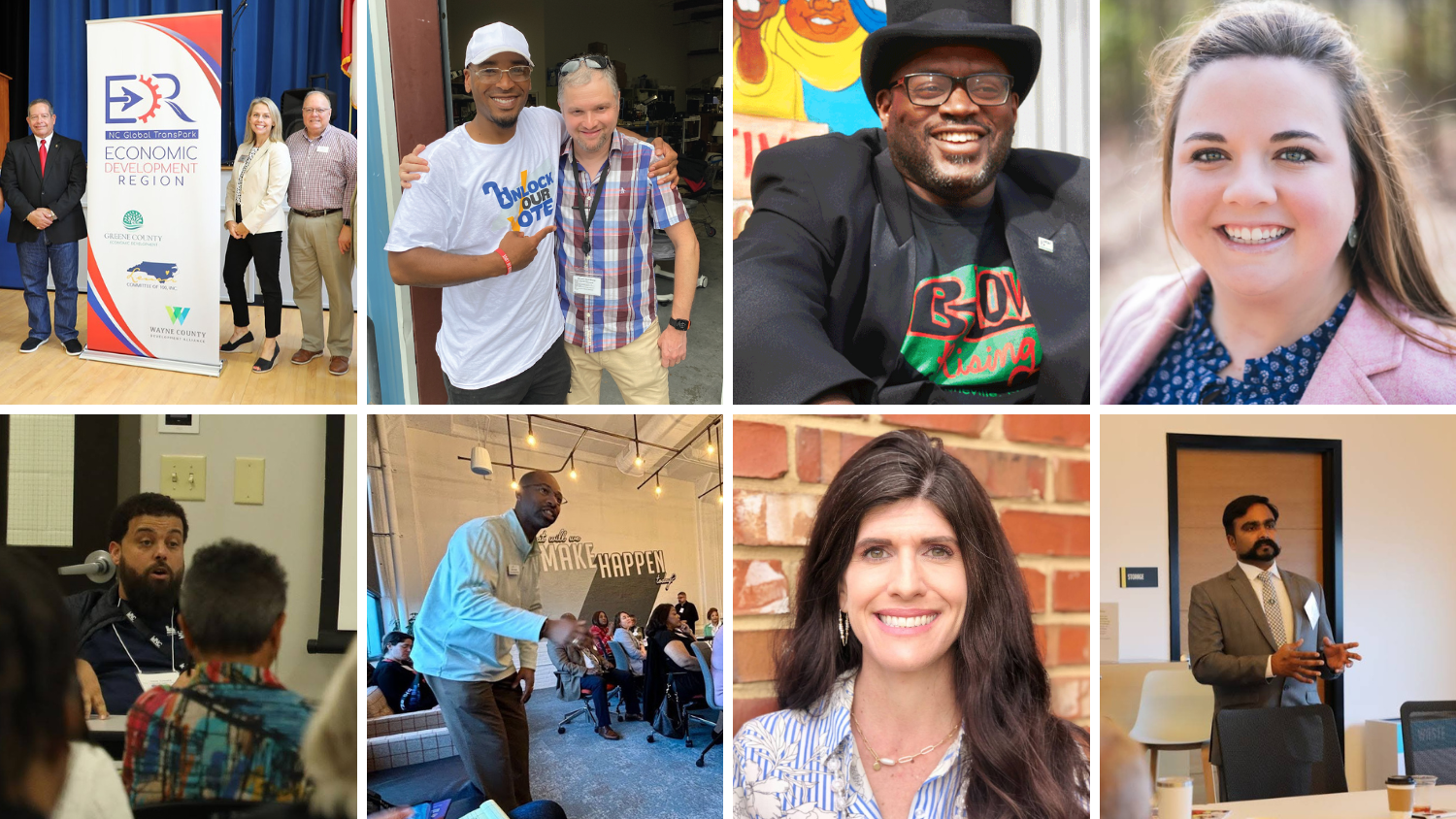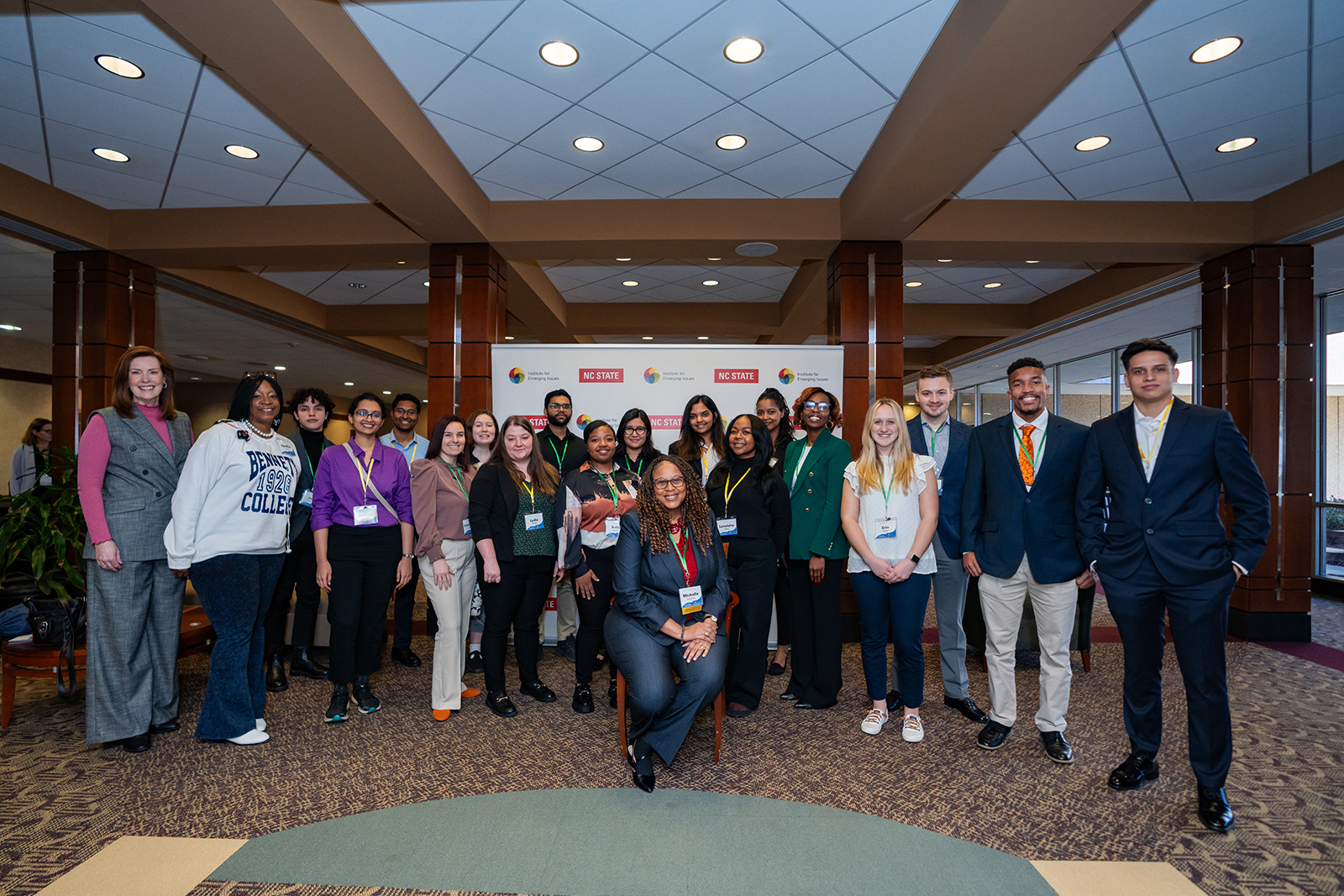Education and Play: How do they affect our listening?
Emerging Voices Blog Series
Author: Eva McDonald, IEI Community Initiatives Intern

As society continues to advance, experts are noticing a decline in active and effective listening. According to Psychology Today, research shows that 96 percent of people think they are good listeners, yet people only retain about half of what others say.
In my time here at IEI, I have attended three large statewide convenings and several other smaller regional gatherings where people came together to talk about critical issues our state is facing. Connecting with one another is the best way to tackle these issues as people can share their stories and provide resources to the rest of the community. In addition to in-person experiences, we are able to connect with others throughout the globe through social media, broadcasting, audio streaming and more.
Since people are now more connected than ever, why can’t we listen? What has stopped us from hearing each other and actively participating in deep conversation? I think the answer begins with education and play.
Education shapes the formative years and helps develop people into who they are today. Students learn to read and write, solve math problems and use science formulas, but how often do they practice listening? And not just listening to the teacher, but actively listening and taking tests or completing activities based on listening? Active listening assessments were uncommon in my education, and I’m going to guess that they weren’t common in yours, either.
Students spend more time in listening environments compared to adults. According to a report published by Michael Gilbert with Central Michigan University, students are in listening situations approximately 65 to 90 percent of the time, compared to 50 percent for adults; yet, most people have never been taught the skill of listening.
We can’t expect someone to know how to write in cursive if they were never taught, so how can we expect them to know how to listen? This is where play comes in.
During play, children learn listening comprehension skills that aren’t typically found in an educational setting. They make up stories that they act out with their toys, build rocket ships or pirate ships out of cardboard boxes, and even create make believe scenarios outside with their friends or siblings. They get to practice formulating imaginative stories and then listening to how others add on to them.
Unfortunately, lots of toys, books and shows are filled with bright colors and loud noises, and they leave little to the imagination, which is key in developing listening skills. For example, most Barbie dolls come with a preset career/title. There’s Doctor Barbie and Marine Biologist Barbie and even Chicken Farmer Barbie. While these dolls can be dressed up differently, they originally come with a set job and imaginative parameters. With so much color and description with each toy, kids may find it hard to imaginatively play freely. I remember one Barbie I owned as a kid had a color changing swimsuit painted onto her body. No matter what outfit I changed her into, I always knew what role she was intended to play. You may have experienced similar things growing up, or you may know a small child who is growing up with play being imagined for them. While the way you were taught can’t be changed, you can actively play a role in the lives of the children around you by advocating for these things.
Our adult lives do not revolve around play and education, for the most part. As adults, we are surrounded by a deafening commotion as the world continually seeks our attention and time. Is it surprising that we find it hard to listen when so many things demand our attention? So, what can the average person do to improve listening? Parents can help introduce and improve their child’s learning capabilities through play and education. For those who are not connected to children, consider reaching out to a teacher friend or youth center and discuss strategies that they can use to improve active listening in students.
To improve your own skills in listening, consider looking up some active listening techniques like those recommended by the Harvard Business Review or the Center for Creative Leadership and practice them in your home, work and extracurriculars. Practice the art of listening for a few weeks and see what you learn and how you grow.
As for listening in a world that demands your attention, practice imagining and dreaming like you did when you were a kid. I know, it may sound silly, but hear me out. Imagine what the world would look like if dinosaurs could talk. Imagine worlds filled with things that are beyond the realm and rules of science. Dream about goblins and trolls having tea on a sunny day. Dream about kingdoms and palaces filled with fairies and dragons living in harmony. Let the kid in you play a little bit and allow yourself to explore the possibilities of letting your imagination come to life. According to Walden University, daydreaming can help reduce anxiety and stress and boost problem solving and creativity. It can be a helpful resource in focusing and learning to quiet your mind enough to listen. This skill can be translated into your everyday life. Learning to quiet yourself can help you understand what your boss is saying more easily or help you focus better on the task at hand.
As you practice and grow your listening skills, you may notice only small changes at first, but, hopefully, you will begin to listen better to the conversations around you and be better able to converse and discuss with others. I hope that the deafening world around you becomes a little bit quieter this week and that your conversations begin to get a little bit louder.
- Categories:


